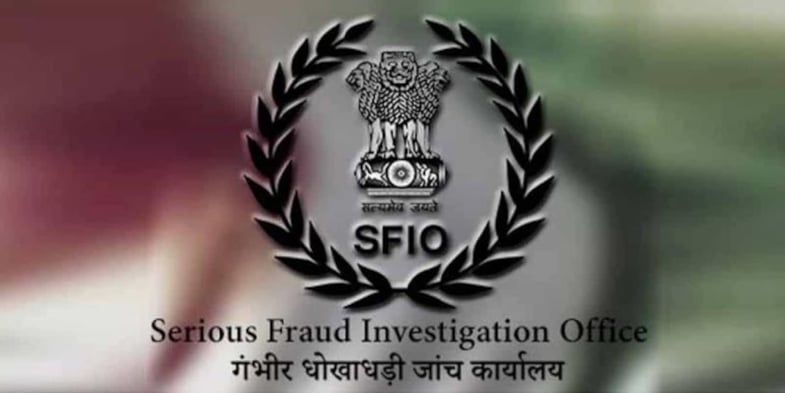SFIO: Guarding India's Corporate Soul
DEEP DIVE
Aayan Birla
2/8/20257 min read


INTRODUCTION
The Serious Fraud Investigation Office (‘SFIO’), born out of the ashes of corporate scandals such as Satyam, was established under the Companies Act, 2013 (‘Act’) to contain the rising tide of white-collar crime in India. The Act had given the SFIO the powers of conducting detailed investigations into the affairs of companies suspected of fraudulent activities to safeguard the interest of the investors and uphold the integrity of the corporate sector.
The SFIO is different from regular police with respect to investigation. They are specialized and have a wider scope of authority while dealing with financial crimes. Therefore, they can easily tackle the corporate malpractices. Nevertheless, as SFIO increases its reach and investigates big cases, the limitations of its search authority become inevitable.
This blog looks into the very heart of the SFIO mandate and analyses its authority under the Act. It explores the legal grey areas surrounding its investigations, examining the delicate balance between robust enforcement and safeguarding against potential abuses of power. This blog has tried to explain the powers of SFIO, and its role in the Indian corporate landscape with a view to understand this very important agency and how it has affected the fight against corporate fraud.
BACKGROUND
Before the SFIO, corporate fraud investigations were a patchwork quilt. The Registrar of Companies (‘RoC’) were the corporate record-keepers, their primary focus was to ensure that companies followed the rules. While they had the authority to investigate complaints, they were like watchdogs with limited teeth – they could bark but couldn't bite very hard.
Similarly, in earlier times The Department of Company Affairs (‘DCA’), was considered the main overseer of corporate matters and had the authority to investigate, but it often relied on the police, who were more accustomed to chasing street criminals than having expertise in unravelling complex financial schemes. This reliance on police investigations was like using a sledgehammer to crack a nut – often slow, inefficient, and ill-suited for the task.
The rise of sophisticated scams in the early 2000s exposed the cracks in this system. The old guard for the system, RoC and DCA, were simply outmatched by the cunning of modern fraudsters. It was the need of the hour that a new sheriff was needed in town – a specialized force dedicated to tackling corporate crime head-on.
THE SFIO: INDIA'S CORPORATE CRIME WATCHDOG
SFIO is the crucial watchdog for investor protection and preservation of the country's corporate entity integrity. With the establishment in Act, SFIO is far more than mere investigation; it is a change-orientated initiative to ensure trust in our financial markets.
SFIO is the frontline defence against fraudulent corporate entities as it takes an extremely minute amount of time, from fabricated balance sheets to trading on the insider's side of the information scale, in keeping the money from investors.
Maintaining Market Integrity: The SFIO is not only about catching the bad actors but preventing fraud from occurring in the first instance. By working in tandem with other regulators, enforcing effective corporate governance standards, and setting a level playing field for businesses, it instils public trust within our financial system.
Facilitating Prosecution: SFIO does not just investigate; it empowers. Its thorough investigations arm the prosecution to punish the wrongdoers and serve justice, which in turn acts as a deterrent against future malpractices.
ESTABLISHMENT OF SFIO
S. 211 of the Act provides for the establishment of the SFIO under the Ministry of Corporate Affairs (‘MCA’). This section outlines the purpose and functions of the SFIO, which primarily investigates serious frauds committed by companies. The Central government may appoint such experts as it considers for the efficient discharge of its functions under this Act.
DISSECTING THE ACT: A SECTION-BY-SECTION GUIDE
The Central Government's Discretion
S. 210 empowers the Central Government to investigate the affairs of companies. It works on a "may" basis, implying that the Government is allowed to make an order of investigation based on various factors, including Registrar reports, company resolutions, or matters of public interest. However, in case of a court or tribunal order of investigation, the Government is bound to do so.
Enabling Power to SFIO
S. 212(2) grants the SFIO extensive powers to investigate financial frauds and corporate concerns. It allows for both proactive investigations initiated by the Central Government and reactive investigations based on complaints or suspicions.
Exclusive Jurisdiction of SFIO
S. 212(2) provides for the exclusive authority of the SFIO to investigate offenses under the Companies Act. It bars other agencies from doing parallel investigations to avoid jurisdictional conflicts and streamlining the process.
Director of SFIO as Inspector
It is under S. 212(4), the Director of SFIO has been appointed an "Inspector" under the Act, giving the necessary power for investigating.
Strict Bail Conditions for Fraud Offenders
S. 212(6) mandates harsh bail terms for fraud under Section 447 of the Act against the persons charged. Unless exceptions exist based on grounds of age, health, or infirmity, the accused will not be granted bail without hearing the Public Prosecutor and if the court is satisfied with the innocence of the accused. The purpose is to discourage fraudulent activities.
Arrest Powers
Under certain circumstances, as per Section 212(8), officers of the SFIO can arrest individuals without a warrant if they believe that such individuals have committed an offense under Section 447.
Prosecution
S. 212(14), After the report of investigation submitted by the SFIO, the Central Government is entitled to ask the SFIO to start prosecuting against the company and its employees. This signifies that the Government must ensure the accountability of corporate fraudsters in case they are found guilty.
CHALLENGES BEFORE THE SFIO: NAVIGATING THE MAZE OF CORPORATE FRAUD
SFIO plays an important role in investigating and prosecuting corporate frauds in India. Despite its significant mandate and powers, it encounters numerous challenges that hinder its functioning and effectiveness. These challenges can be categorized into several key areas:
Resource Crunch:
Talent Hunt: The SFIO struggles to attract and retain top-tier talent with expertise in forensic accounting, IT, and law – skills crucial for navigating complex fraud schemes.
Budget Blues: Scarce resources constrain the much-needed investment in state-of-the-art technology, like data analytics, that can be a game-changer in the investigative process.
Caseload Congestion:
Investigation Backlog: The pendency of cases threatens to overwhelm the SFIO, thus delaying justice for victims and denting public confidence.
Unravelling Complexity: Modern corporate fraud often involves cross-border transactions and sophisticated financial instruments that require a lot of time and resources to investigate.
Interagency Collaboration: A Double-Edged Sword:
Bureaucratic Bottlenecks: Coordination is the need but is not so simple; it brings bottlenecks in bureaucracies, particularly when coordinated among several agencies that deviates the priority.
Information Silos: Inadequate or delayed information exchange among agencies severely slows down the process of investigation and creates an obstacle for delivering justice.
Public Perception: A Two-Way Street
Paper Tiger Stigma: There have always been cynicisms surrounding SFIO in the past, casting doubts over their efficiency and having gradually eroded public confidence over the years.
Technological Advancements in Fraud
The dynamic nature of fraud methods, spurred by the digital world and fast-changing technology, requires the SFIO to change with the times and be innovative.
Cybercrime creates new and emerging challenges that require innovative navigation of the cyber world. Digital forensics must be mastered because investigators must navigate complex landscapes of cybersecurity.
JUDICIAL PRECEDENTS
Several landmark cases have shaped the understanding and application of SFIO's powers:
SFIO v. Nitin Johari
Facts: The SC examined a bail petition based on an investigation that the SFIO had conducted pursuant to Section 447 of the Companies Act.
Judgment: The Court cancelled the bail granted by the Delhi High Court, observing that the twin pre-conditions for bail under Section 212(6) were not satisfied.
The issue is constitutional validity of Section 212(6) but with an issue of bail under serious frauds.
N. Sampath Ganesh v. Union of India
According to the Act, the SFIO can forward their interim reports on its preliminary findings during an investigation with the government, but the final report upon closing of investigation will be made obligatory to file under the Act.
As indicated by this legislation, it becomes possible for the government to proceed with prosecutions on company and its officials, but it does not reveal whether the proceedings can be initiated following the interim reports also?
Such confusion in the judicial fraternity was answered by the Bombay High Court ruling, clarifying that any interim report submitted with sufficient detail to support charges can initiate prosecution.
SFIO v. Rahul Modi
A critical question arises: Does the SFIO's authority cease if the investigation report is not filed within the timeframe stipulated by the Central Government?
This was answered in this case where the Supreme Court has held: Given that Section 212 does not have a special date for its filing of investigative reports, if the time available as per Central Government order exceeds, the direction for investigation mandating the existence of SFIO subsists after that period; hence, investigative power of the SFIO has been held still existing.
Parmeshwar Das Agarwal and Ors. v. The Additional Director (Investigation) SFIO
A cursory reading of relevant provisions in the Act, shows that SFIO holds a vast power range. Noticeably, terms such as "reason to believe" and "opinion," are used in the Act, which lend themselves to a highly subjective understanding and can arguably enable the exercise of powers vested with the SFIO in the form of investigative power in such a way so as to provide ample scope for its abuse.
As already discussed above, S. 212 of the Act allows the Central Government to order SFIO for an inquiry upon forming the "opinion" that it is so necessary. However, opinions are inherently subjective, and thus, this provision may be used arbitrarily on a mere surmise without any fact-based justification.
The court to balance the same, held that even though the opinion of the Central Government is sufficient to sanction an investigation, it must be based on prima facie evidence. Beliefs or assumptions are not enough to start an investigation. In addition, the court further held that the formation of the government's opinion should be based on verifiable circumstances. Such circumstances must have the nature that can be well substantiated and proved before a court of law in case their existence is challenged.
FINAL THOUGHTS - A Pillar in Progress, But Room for Improvement
SFIO is a strong watchdog, keeping the evil shadows of corporate fraud at bay. Equipped with a robust arsenal of investigation techniques and using a multi-pronged approach, it certainly takes the companies into good habits and in turn ensures investors' hard-earned money remains safe.
The fight against corporate malfeasance, however, is not easy at all. At times, their limited resources don't allow them to dig deeper than they wish. If they can build more robust partnerships with agencies like CBI and ED, they would significantly enhance their fighting power. At times, the system can be slow in its response, and long-drawn litigation may also slow their work.
This would add credibility to public trusts by providing maximum transparency over investigations and prosecutions on the part of the SFIO.
THE ROAD AHEAD: Socking the SFIO for a Safer Tomorrow
In an economy that grows this fast, only when the strength of institutions like the SFIO becomes essential to the corporate sector can become more transparent and answerable. Proactive adaptation to every new challenge – be it cybercrime or the intricacies of financial instruments. Data analysis and forensic accounting can be further developed with technological advancements. There is the possibility of developing stronger relationships with international law enforcement agencies that can facilitate international cooperation in the cross-border financial crimes. Ultimately, it will be the agile and well-resourced, hence collaboration helps focusing on deterring corporate misconduct and aligns with a better, safer business environment in India.
